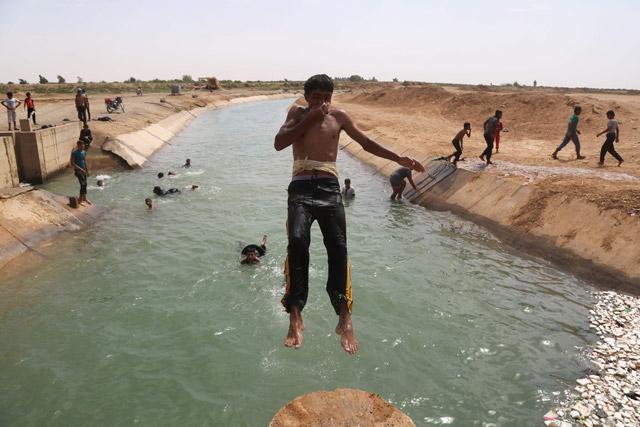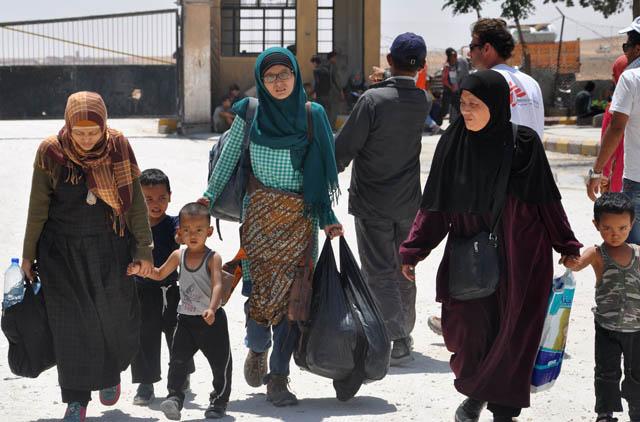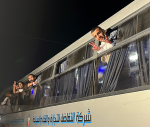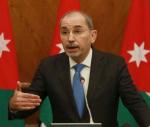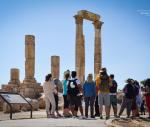You are here
Food access in Syria’s Raqqa at ‘critical turning point’ — NGOs
By AFP - Jul 31,2017 - Last updated at Jul 31,2017

Smoke billows out from Raqqa following a coalition air strike on Friday. Syrian government troops entered the last Daesh group stronghold in the country’s Homs province on Friday after extremists began withdrawing, a monitor said (AFP photo)
BEIRUT — Food access in Syria's battle-torn Raqqa is now at "a critical turning point", aid organisations said Monday, with markets shuttered and residents depending fully on their dwindling stockpiles.
Raqqa has been gripped by fierce fighting for nearly two months and the US-backed Syrian Democratic Forces have ousted the Daesh terror group from half of the northern city.
An assessment released Monday by REACH, a network of humanitarian organisations operating around Raqqa, painted an increasingly dire picture.
"While in previous weeks residents were able to purchase some food at markets, the majority of key informants reported that residents are now relying entirely on food stored from previous weeks," it said.
"Food markets, which were functioning sporadically three weeks ago, are generally no longer in operation."
Bread was consistently found in 15 of Raqqa's 24 neighbourhoods several weeks ago. Now it is no longer regularly available anywhere in the city.
Food prices have also skyrocketed, forcing residents to eat smaller meals or skip them entirely, the report said.
Raqqa is Being Slaughtered Silently (RBSS), an activist collective publishing news from inside the city, has also warned of food problems.
"The bakeries are closed because there's no fuel or flour, and the shopowners have fled. Whatever flour is here is spoiled and full of worms," RBSS activist Husaam Eesa told AFP earlier this month.
"People can't store things in the refrigerators because there's no electricity. They can't cook because there's no water."
The United Nations estimates that between 20,000 and 50,000 people are still in Raqqa, but REACH said the number could be as low as 10,000.
It estimated that the most densely populated district was Al Hurriya in the north, with at most 5,000 residents, and that 14 out of the 24 neighbourhoods were abandoned or almost abandoned.
According to REACH, only one wing of Raqqa’s state hospital is still functioning but offers just basic first aid.
Medical charity Doctors Without Borders (MSF) echoed those concerns on Monday, saying wounded civilians were often trapped in the city for days or weeks without medical care.
“In Raqqa city, if you don’t die from air strikes, you die by mortar fire; if not by mortars then by sniper shots; if not by snipers, then by an explosive device,” a 41-year-old with shrapnel wounds to his chest told MSF after he fled Raqqa.
“And if you get to live, you are besieged by hunger and thirst, as there is no food, no water, no electricity.”
Related Articles
BEIRUT — Syria's Raqqa once thrived on the banks of the gushing Euphrates River, but dire shortages in the Daesh terror group stronghold are
BEIRUT — The battle to oust the Daesh terror group from its stronghold of Raqqa is creating daunting challenges for aid groups responding to
RAQQA, Syria — As the Daesh terror group militants steadily lose chunks of their Syrian bastion Raqqa to a US-backed force, the extremists a


